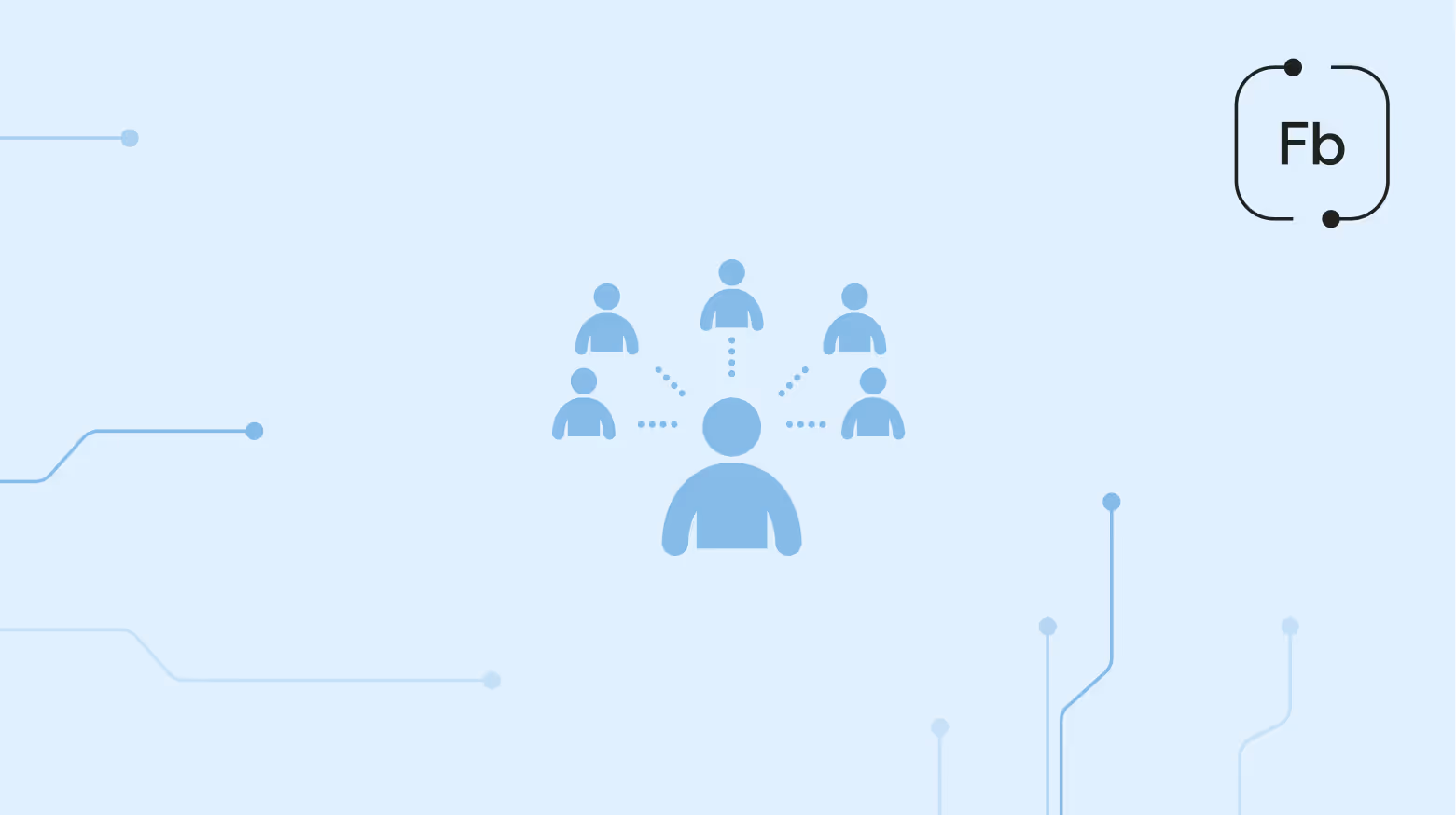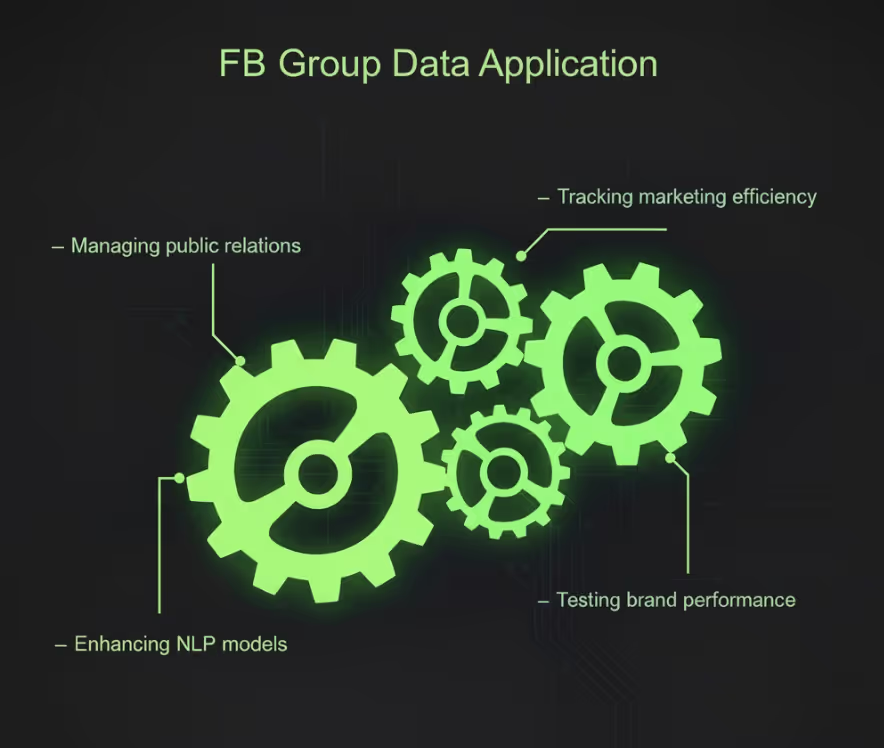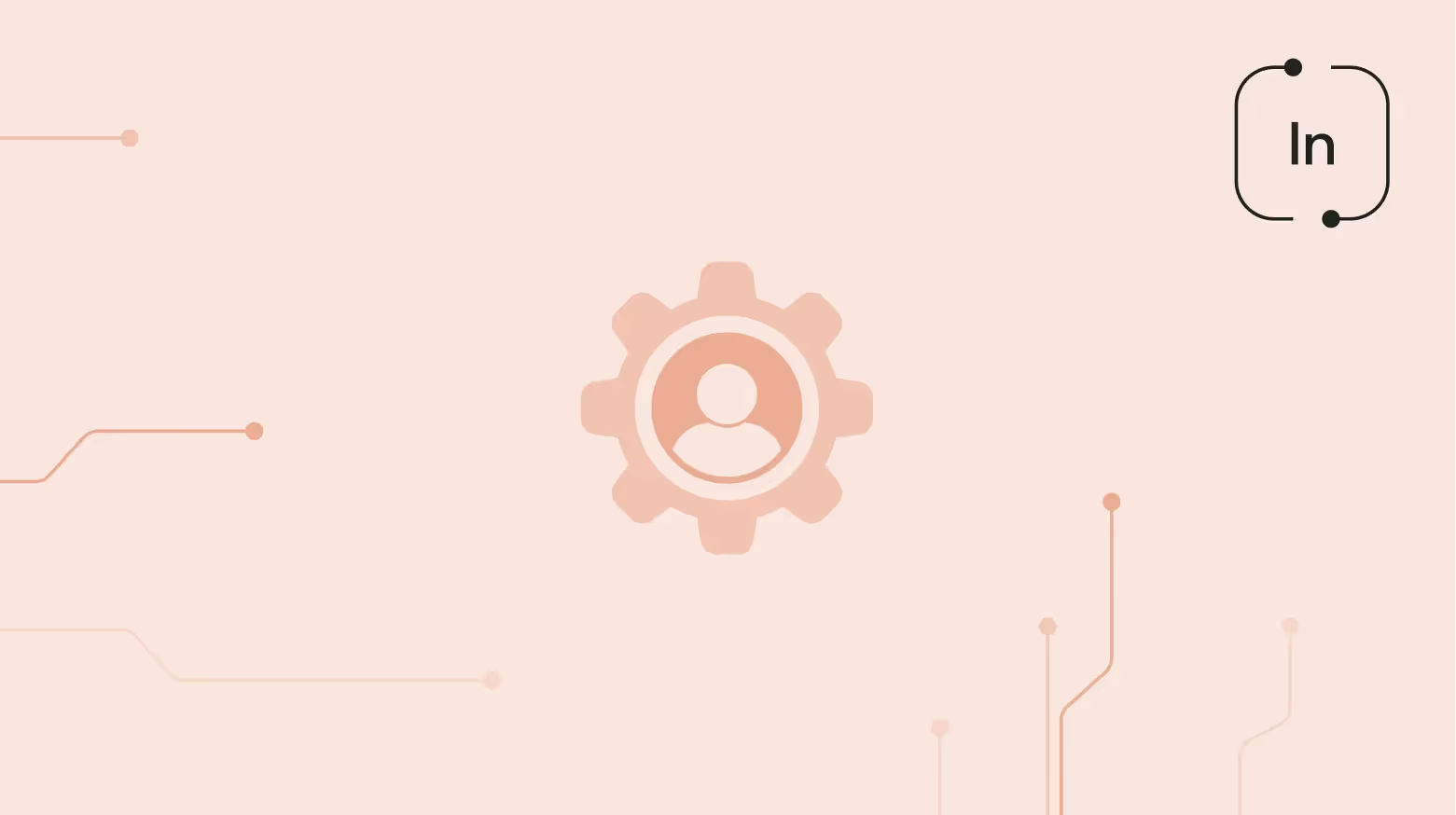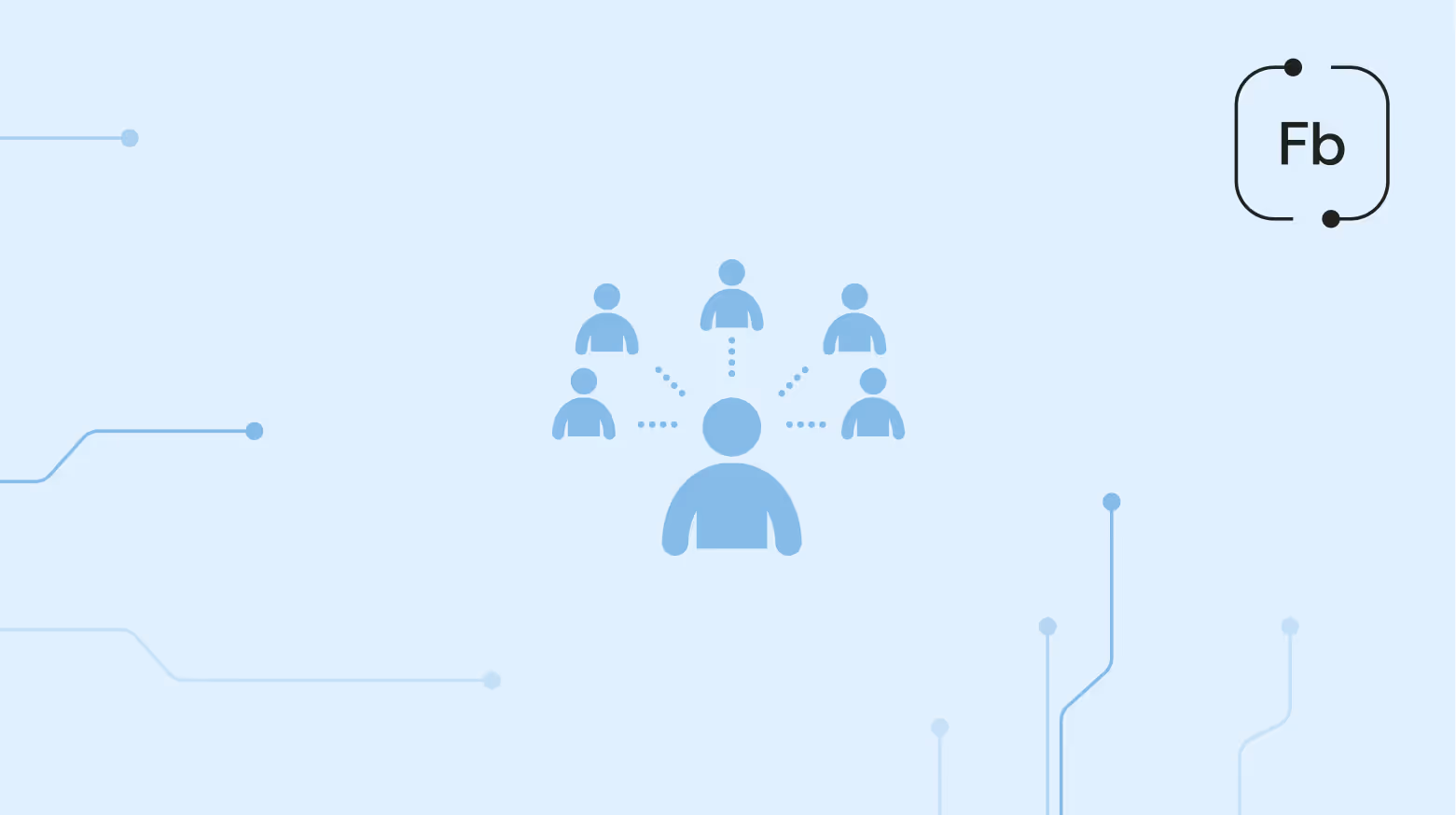
Facebook groups are the goldmines for savvy marketers and product teams with their real-time discussions. But here’s the million-dollar question: How to find a reliable group extractor for Facebook to reach into this wisdom without overstepping the technical minefields? We’re about to figure it out. Learn the main reasons you should gather the FB group data, why scrapers are no more reliable (if they were at all), and how API alternatives can save you time and nerves.
Or book a consultation with our technical team today and map out your Facebook group data without even reading.
Overview
- Facebook groups host 1.8 billion users and 25 million active groups daily, offering rich real-time data for marketers, researchers, and AI training.
- Businesses use Facebook group insights to track marketing efficiency, enhance NLP models, and for PR monitoring.
- Unlike an average Facebook group data scraper, Data365 delivers structured, thread-aware, deduplicated JSON data enriched with metadata like sentiment and engagement.
Facebook Group Scraper: The Illusion of Easy Access
Facebook groups have made it far beyond their humble origins as digital water coolers. Currently, they are busy centers where 1.8 billion users share points of view, spread recommendations, and create trends, keeping 25 million active communities daily.
Run a Google search for “Facebook group scraper,” and you will find an entire army of tools that will promise to give you any volume of posts, comments, member lists, and engagement data on a silver platter. The twist, however, is that most of them are blatantly operating on the edge of technical collapse, while often providing patchy, outdated information.
Why the fragility? Facebook invests heavily in anti-bot warfare. Amongst other ever-changing UI patterns, CAPTCHA challenges, and aggressive IP throttling, the platform is hyper-vigilant to detect and prevent automated traffic. That scraper coasting along today might be dead in the water tomorrow — and, still worse, may drag your account down in an irreparable ban.

Not to gather data from FB groups at all? No one asks for such a sacrifice. You can still gather and get public posts and other endpoints from communities by using robust instruments like APIs. Actually, we have a strong candidate lined up. Let’s head to the next section to reveal its name.
Data365 Social Media API over Facebook Group Post Scraper: What’s the Deal
The Social Media API by Data365 turns the tables. We are narrowing down to publicly available information to prevent any restrictions or bans. Outdated and messy data? Not our stick. Long approval times? We’re not about that. Fresh and raw material? Yes, please!
Teams that search for a Facebook group post scraper are usually interested in keeping track of brand mentions, understanding campaign response, or identifying rising customer frustrations. However, traditional extractors often provide HTML or plain text and leave specialists to roll up their sleeves and clean, de-duplicate, and make sense of heaps of sloppy data. Data365 API slices through the mess like a hot knife. We offer:
- Scalability of any volume, 99% uptime, and asynchronous request workflow.
- Formatted JSON responses with clean values, such as message, created time, reactions, comments count, and other (when publicly available).
- Defined hierarchy that is thread-aware, so you can follow conversations all the way through.
- Intelligent deduplication, which avoids the re-counting of reshared content.
It's like you're directly injecting intelligence into your dashboards with Data365 — be it Tableau, Power BI, Python notebooks, or your own ML pipelines.
Need more evidence why companies choose us? Check out our product page to see all the features of our API.
Getting Into the Popularity of Facebook Group Extractors: The Real-World Cases Businesses Use This Data
But why all seek this type of information from FB? In comparison with curated brand pages, each of the Facebook group extractor works hard to retrieve organic, peer-driven discussions that show unfiltered sentiment, emerging pain points, and grassroots trends.
According to The Bazaar Voice research, thirteen percent of customers’ places to visit before the purchase include social media community discussions. We’ve broken down the main reasons why companies strive for Facebook group data.

— Purpose #1: Tracking marketing efficiency
The most frequent endpoints, such as message, created time, reactions, and comments count, allow companies to follow trendy groups and assist in tracking brand mentions, recognizing PR issues, and observing crisis signals in real-time.
— Purpose #2: Testing brand performance
Group data is utilized by market researchers to confirm product concepts. An outburst of DIY repair discussion regarding a certain appliance? That is a sign of a hot-topic problem that needs to be solved. Are there frequent feature requests in hobbyist communities? That's your next R&D priority.
— Purpose #3: Enhancing NLP models
Experts in data science and AI development seeking language patterns, use FB group’s data full of slang, emojis, and region-specific wording to train to NLP models.
— Purpose #4: Managing public relations
Analysts of the public sector also often keep an eye on group sentiment to understand policy uptake — e.g., response to health mandates or infrastructure reforms — to be able to react appropriately and in a timely manner.
But talk is cheap. It’s the best time to see how companies in totally different sectors have used Facebook group data via the Data365 API to address real business problems.
Combating Social Media Manipulation at Scale
A data science company located in Montreal and collaborating with NATO StratCom had to fight fake accounts, paid interaction, and networks of bots that polluted the social environment. They used the API of Data365 to examine more than 315,000 user profiles in order to find whole scam networks by detecting bot-like posting activity and repetitive content.
Health Intelligence In Covid-19 Crisis
An American healthcare organization had to track the narratives of the masses regarding government anti-epidemic regulations. They retrieved 6,726 publicly available posts on various social media (including Facebook groups) using Data365 Social Media API. The analysis has revealed that negative emotions were most frequently discussed in the context of “government”, “quarantine”, and “president”, so the organization refined its communication strategy and started to react to social interests headfirst.
Detection of Cybersecurity Threats
Some U.S.-based cybersecurity companies (whose names are under NDA) incorporated the Social Media API to fish through Facebook groups and other social platforms to identify early warning signs of a digital threat. They established keyword tracking of shady communities to counteract new threats before they had a chance to grow. One company has suppressed a manipulation network by detecting a disinformation campaign across healthcare and financial circles.
For more information about our case studies, check out this page: Data365’s Use Cases.
The Bottom Line: Which Group Extractor for Facebook to Choose
The contest to get the Facebook group insights is not won by the fastest scraper, but by the most clever and cooperative data partner on the business side. When others cut corners and hope that Facebook will be oblivious, Data365 creates bridges: between raw social chatter and strategic intelligence, between innovation and integrity, between the burning questions of today and the breakthrough answers of tomorrow.
In a time when data ethics and platform robustness are no longer a luxury of extras, going with a proven API rather than a scraper is not only safer, but also the long-term strategic choice.
So, are you ready to leave fragile and tricky tools in the rearview mirror? Fill in a short form and get your 14-day free trial from Data365 right back. That’s where data meets scalability.
Extract data from five social media networks with Data365 API
Request a free 14-day trial and get 20+ data types








.svg)
.svg)
.svg)






.svg)
.svg)
.svg)
